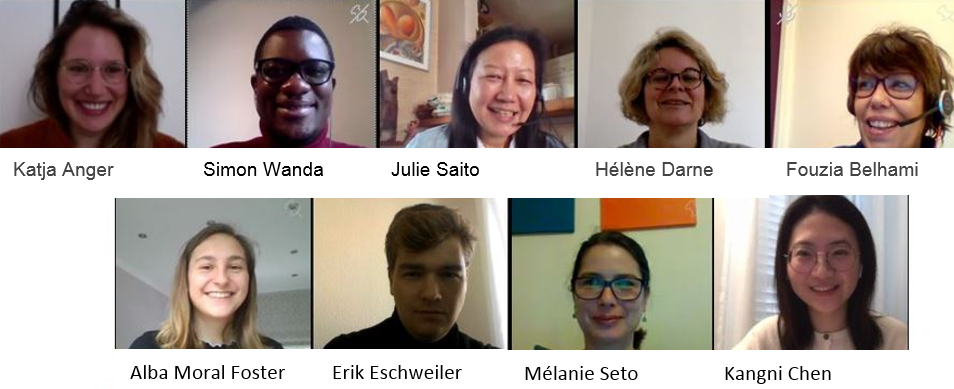Message from Julie Saito, ASPnet International Coordinator
Dear friends,
Dear students and teachers,
Dear National Coordinators,
First of all, a very big thank you to all of you who have already sent us messages telling us about your situation, how you are dealing with being out of school and sending beautiful messages of solidarity, in a variety of forms, including text, video and art pieces.
We are proud to tell you that many of those feature on a
dedicated UNESCO web page
. We are also working on putting all your contributions on the ASPnet web site. Well done and keep it up!
In our newsletter's second issue, we would like to focus on giving you the latest update on UNESCO's Education response and new initiatives available to you, with a particular emphasis on the
#LearningNeverStops initiative. The newly established Global Coalition on Education has started this initiative in order to continually provide updated information on learning in the current pandemic.
We encourage you, our members, to lead by example and help spread valuable information, resources and to support as many students, teachers and parents as possible and invite them to be part of this community of solidarity and support in Education.
In this regard, we continue to celebrate international days and tell you about International Sports Day in this issue. |
Let me take an opportunity to present the ASPnet team members through our team photo, which reflects our spirit and unity to stay
CONNECTed with you.

On behalf of the team, you will find a
video message from my colleague
Fouzia Belhami, whom many of you already know.
Stay safe, Stay connected.
Julie Saito, Chief of the ASPnet International Coordination
We want to start by sharing the great messages of solidarity of a few students and teachers on how they are dealing with the challenges of closed schools:
Videos:
Click
here
to get the messages received from Guinea, Spain and Greece
- Guinea - Ibrahima Alpha BAH, Secretary General of the Guinean National Commission for UNESCO
- Spain - Marieta Barral, Teacher, Colexio Eduardo Pondal
- Greece - Vivian D. - Stavroula V., Ralleios School for girls
|
UNESCO has launched the
Global Education Coalition with UN agencies, comprising of international organizations, civil society and private sector partners. The Coalition aims to: -
Help countries in mobilizing resources and implementing innovative and context-appropriate solutions to provide education remotely, leveraging hi-tech, low-tech and no-tech approaches
-
Seek equitable solutions and universal access
-
Ensure coordinated responses and avoid overlapping efforts
-
Facilitate the return of students to school when they reopen to avoid an upsurge in dropout rates
|
-
The new coalition has started the initiative
#LearningNeverStops, providing continually updated information on monitoring global school closures and finding distance learning solutions
-
As part of this initiative UNESO has compiled an extensive
list of resources for distance learning. We are sure that some of you are already using some of these resources, and we would love to hear about how you have incorporated them into your learning. We welcome any and all of your feedback. Your contributions will help UNESCO adapt and update its response. This is a list of educational apps, platforms and resources to support parents, teachers, schools and school administrators in facilitating student learning and providing social care and interaction whilst schools are closed. Most of the suggested solutions are free and many cater to multiple languages. Although these solutions are not explicitly endorsed by UNESCO's, they tend to be wide-reaching and have a large and strong user-base and evidence of impact. They are categorized based on distance learning needs, but most of them offer functionalities across multiple categories.
-
It is important to us that everyone have access to these solutions and we are fully aware that online resources may not be accessible to everyone. Nevertheless, we firmly want to include everyone, no matter what kind of access you may or may not have. Therefore, the list contains different kinds of resources, ranging from digital learning management systems, to systems purpose-built for mobile phones, systems with strong offline functionality to Massive Open Online Course (MOOC) platforms. It further includes self-directed learning content as well as mobile reading applications.
The list also contains
resources for collaboration platforms that support live-video communication and tools to create digital learning content.
Further resources include:
We encourage you to send us your contributions, in words, pictures, videos, art works to build and strengthen our network, encourage and take care of each other.
We would also like to hear from you about your experiences and innovative ways to learn, out of schools and within your families. Please send your contributions to
aspnetinaction@unesco.org.
|
|